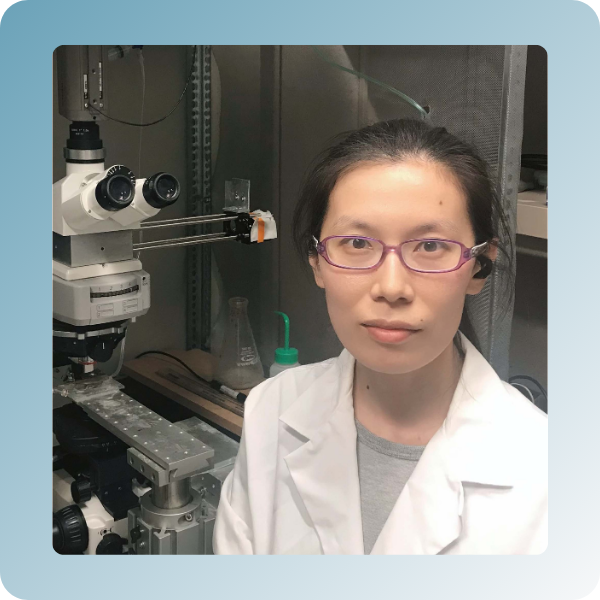Admera Health Awards Grants to Seven Exceptional Researchers to Advance Their Single-Cell Studies
Admera Health is committed to empowering researchers to make breakthrough discoveries in genomics research through cutting-edge Next-Generation Sequencing technology. We recently awarded grants to seven exceptional researchers to advance their single-cell research with technology powered by 10x Genomics. The program aimed to equip applicants with advanced technology to accelerate single-cell research. Recipients were carefully selected based on their submission’s creativity, scientific impact, and innovation from a competitive pool of applicants. We invite you to read more about how the recipients plan to use single-cell sequencing to advance
their research initiatives.
We Congratulate Our Seven Outstanding Recipients:
David Christiani MD, MPH, MS
Occupation: The Elkan Blout Professor of Environmental Genetics, Professor of Medicine
Affiliation: Harvard TH Chan School of Public Health, Harvard Medical School
Lab: The Christiani Lab
Dr. Christiani studies how genes and environmental factors, like pollutants, influence human health. His research focuses on understanding how exposure to pollutants can lead to lung and heart diseases, especially in people with genetic or acquired susceptibility. He develops new methods to assess health risks from pollutants and conducts global studies on various diseases, including cancer, respiratory illnesses, and reproductive health issues. His research aims to identify biomarkers for early disease detection and develop preventive strategies.
Ronguang Xu, PhD
Occupation: Research Fellow
Affiliation: Brigham and Women’s Hospital & Harvard Medical School
Lab: The Chen Lab
Dr. Xu is a researcher at Harvard Medical School studying the biomechanical principles governing early embryonic heart and brain morphogenesis. His research integrates experiments, simulations, and machine learning to investigate how mechanical forces, in combination with regulated gene expression, influence the development of the heart and brain. Dr. Xu focuses on uncovering the role of neuronal growth factors and molecular regulators in driving asymmetric cell growth and chirality during embryonic development. His goal is to elucidate the biomechanical and biomolecular mechanisms that shape the early embryonic heart and brain, advancing our understanding of the factors that contribute to their morphogenesis.
Xandra Breakefield, PhD
Occupation: Professor of Neurology & Geneticist (Neurology & Radiology)
Affiliation: Harvard Medical School & Massachusetts General Hospital
Lab: The Breakefield Lab
Dr. Breakefield’s lab develops biomarkers and therapies for glioblastoma. More specifically, her lab is investigating a unique population of cells that migrate from the olfactory bulb to brain tumors. We aim to use these cells as delivery vehicles for gene therapy to treat deep-seated brain tumors.
Additional Methods: immunohistochemistry and flow cytometry of mouse models with engrafted tumors in the brain
Taraswi Mitra Ghosh, PhD
Occupation: Research Scientist Department of Urology, Research Associate in Surgery
Affiliation: Brigham and Women’s Hospital,
Harvard Medical School
Lab: The Jia Lab
Dr. Mitra Ghosh’s career has reflected overlapping interests in cancer research and the development of personalized treatment strategies to achieve maximum efficacy and improve the quality of life for cancer patients. Her expertise in pharmacogenomics and translational research includes cancer genetics/genomics, functional genomics, cell & molecular biology, preclinical/animal modeling, single-cell and & multi-omics with a focus on addressing tumor heterogeneity, disease progression, and drug resistance in cancer, especially in solid tumors including prostate cancer (PCa). Her research goals are to i) investigate and identify genes/biomarkers specific to disease progression and aggressiveness, ii) discover novel drug targets, iii) develop novel alternative treatment regimens and iv) validate novel, more effective, targeted, personalized therapies based on genomic alterations with a long-term goal to
increase cancer-free survival and reduce
cancer-related mortality.
Additional Methods: CRISPR-Cas9 screening, scRNAseq in pre- vs. post-PARPi (olaparib, rucaparib, and talazoparib) treated PDX models, in silico validation of top genes using PCa patient databases and functionally validating the role of novel non-BRCA HRR alterations using cell lines (in vitro) and xenograft models (in vivo)
Qiyi Yu, B.S.
Occupation: Masters Student in Quantitative Biology and Bioinformatics
Affiliation: Carnegie Mellon University
Lab: The Kuang Lab
Qiyi Yu has a strong background in bioinformatics focusing on transcriptomic analysis and single-cell sequencing. His research seeks to understand how circadian rhythm genes influence pathogenesis and progression of inflammatory bowel disease in mouse models to identify potential therapeutic targets for treating the chronic inflammatory condition.
Additional Methods: spatial transcriptomics, bulk RNA-seq, full-length transcriptome, metagenomics, & bioinformatic analysis
Xingjie Ping, PhD
Occupation: Assistant Research Professor of Anatomy, Cell Biology, & Physiology
Affiliation: Indiana University School of Medicine
Lab: The Jin Lab
Dr. Ping has extensive experience in traumatic brain injury and epilepsy research which focuses on mechanisms and treatment of post-traumatic epileptogenesis. Her research seeks to answer how the immune system contributes to the development of epilepsy after brain injury.
Matthew Dean, PhD
Occupation: Associate Professor of Molecular and Computational Biology
Affiliation: University of Southern California
Lab: The Dean Lab
Since 2009, Dr. Dean has led an active research laboratory in the section of Molecular and Computational Biology. His recent research focuses on understanding the molecular and cellular pathways influenced by androgen signaling on bone development.
Thank You to All Our Applicants
We thank all applicants for their time and thoughtful submissions. Your dedication to single-cell research is commendable, and we're excited about the potential of your work. We look forward to the opportunity to collaborate with transformative individuals to drive innovation in this field.
Future Opportunities
We anticipate similar grant programs in the future, so stay tuned for more information. If you’d like to receive the latest update on future grant programs, feel free to sign up for more communications.
In the meantime, we encourage researchers in Maryland, Washington DC, Pennsylvania, New York, New Jersey, and Delaware to apply for our spatial transcriptomics grant program with Complete Genomics. Applicants will have a chance to win true single-cell resolution using Stereo-seq technology to advance their spatial transcriptomics research with precision. Interested in submitting an application?
Apply here!







